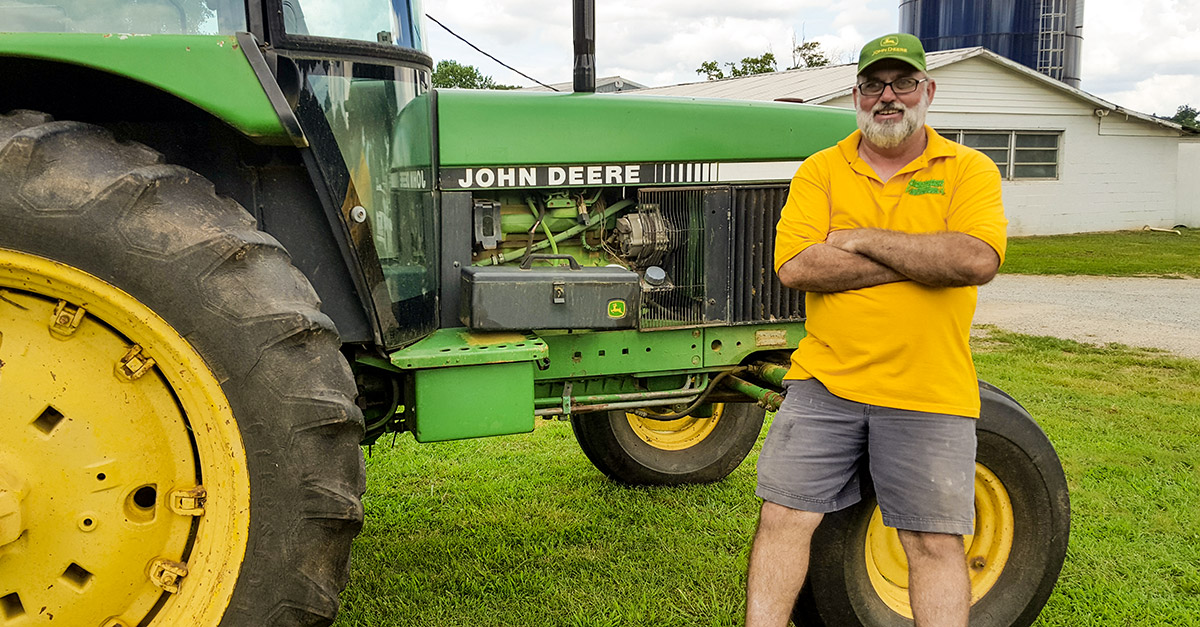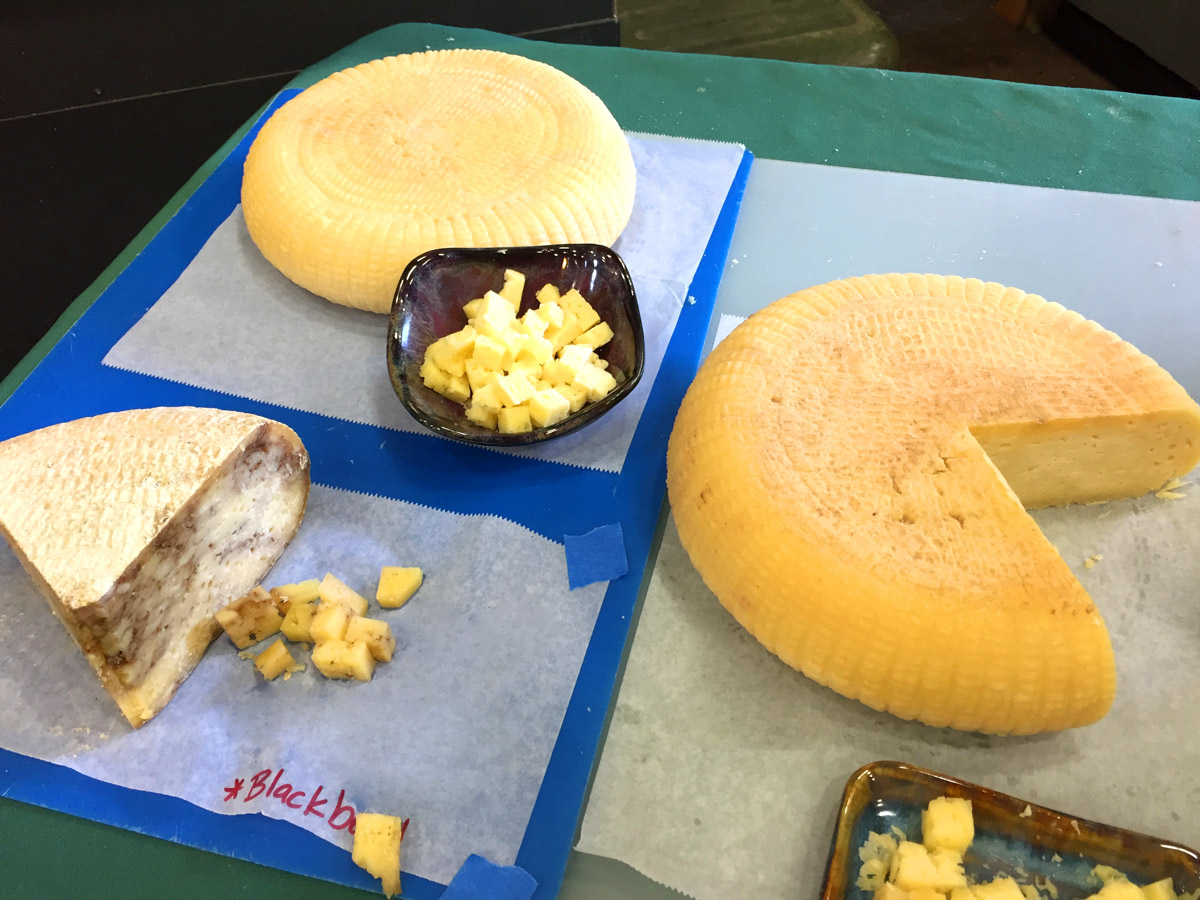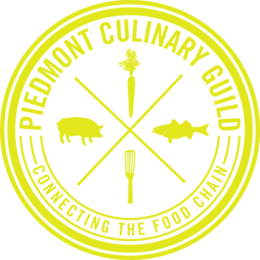Meet PCG Member – Randy Fisher – The Business of Cheese

It seems most farmers don’t really need help networking. Talk to Randy Fisher about his dairy career, and he drops PCG names like raindrops in a water trough.
Lee Menius worked for him. Brent Barbee is just down the road. He’s known Elizabeth Ann Dover for years. When Fisher made the move from selling milk to turning it into cheese, friends and colleagues served as his primary resource, from scrapyard owners to construction workers to a metal fabricator making NASCAR parts.
“Those legs on that table are old exhaust pipes from NASCAR cars,” says the avuncular 55-year old, standing inside the cool, tiled cheese room attached to Cackleberry Farm’s milking shed. A long line of steel-framed windows illuminates two hair-netted workers as they methodically process and package clean white queso fresco into neat clamshell trays.
This is the cheese that changed Fisher’s business. While he grew up on this dairy farm overflown by incoming flights to the Concord Airport, he went out and saw the world before settling back down to the family trade. He estimates he is the 8th generation of farming Fishers in the area, having inherited the place from his father. The two ran Cackleberry together until his father’s passing four years ago.
When the younger Fisher went off to college he elected to pursue a degree in business from Western Carolina University.
“I figured I already knew cows, knew farming. I wanted to learn how to make money off of them in a business that [the government was] paying people to quit!”
He graduated in the age of FarmAid, when lifelong farmers were going bankrupt by the score.
It’s unsurprising then that Fisher’s degree led to an off-farm job with a genetics company, selling bull semen for breeding. While his father continued to run Cackleberry, “It gave me an opportunity to go around all these other farms across the country,” he says, “and get an education on genetics, which ultimately led me to abandon American genetics.”
He says the American system focuses on production, while the European one takes into account disease resistance, ease of calving and other herd management criteria.
The prospective young dairyman also discovered that the cheapest milk in the world was coming out of New Zealand. Without government subsidies on corn and soy feed grains, the Kiwis had continued to keep their cows on pasture, rather than turning to confinement feeding as US farmers have done since the 60s. When Fisher finally quit the genetics job in 2000 to return full-time to farming, he had his plan in mind. He introduced a Scandinavian breed called Viking Red into his Holstein herd, and switched to pastured grazing supplemented with hay, rather than nutrient-intensive grain feed.

Even so, the numbers presented a challenge. When the price of hay skyrocketed a few years ago, Fisher cut his herd back to dedicate additional acreage to growing hay. In a dairy industry structured for large production, milking fifty head doesn’t really compute. So rather than grow his business in size, he chose to create a value-added product: cheese.
At the time, construction in Charlotte was booming, and with construction crews came a large Hispanic workforce. “They actually came to me, looking for somebody to make queso fresco,” says Fisher. Cheesemaking license in hand, he learned from some of the women in the community and launched what has been Cackleberry’s flagship product. Today that cheese represents about 75% of his revenue from dairy products.
In the ensuing 16 years, Fisher has also developed his own line of aged cheeses, which he hesitates to put a label to.
“Cheeses are constantly changing as they age. It’s a different cheese at four weeks, at six weeks, at eight weeks. How do you name a cheese like that?”
The audience for this type of cheese is not the same as for his queso fresco, and this is where Fisher’s network filled in. He partnered with Brad Hinckley and Donna Clark of Coldwater Creek Farm, who sell his cheeses at multiple farmers’ markets in Charlotte. This has put it in front of several chef members of the Piedmont Culinary Guild, bringing Cackleberry cheeses to tables of respected restaurants such as Passion8 and Heirloom.
But Fisher is equally interested in learning from his food-industry colleagues, mentioning the pleasure of meeting several chefs at the PCG’s Symposium last year. In particular, he enjoyed the food costing session led by chefs Chris Coleman and Paul Verica. “That was pretty informative for me,” he says. “Restaurant people, they fight battles too.”
He’s also tapped into local breweries, using spent grains to feed his herd, and playing with beer-inflected cheeses in his aging room.
While Fisher may have a solid grasp of the dairy business, when it comes to cheesemaking, he still feels like a beginner.
“I learned that anything that’s got the word ‘artisan’ attached to it is hard, and is pretty hard to master,” he says. “I’m nowhere near where I’d like to be.”
Profile written by Alison Leininger
